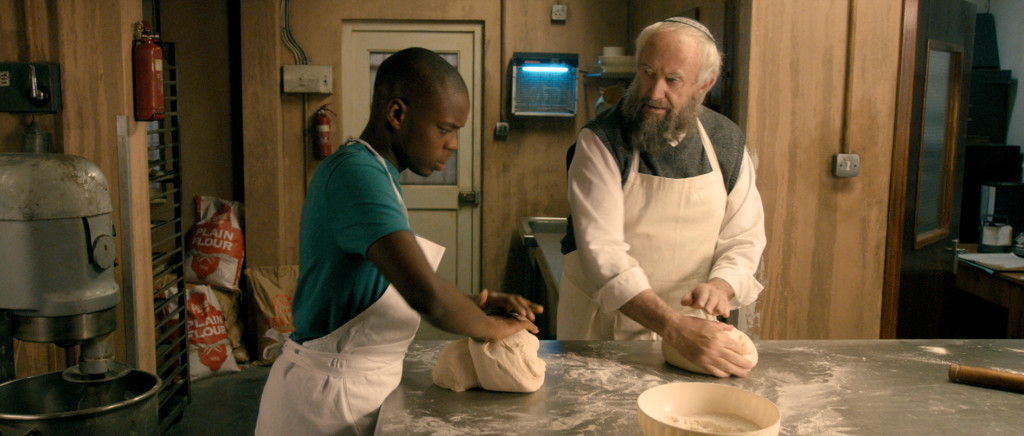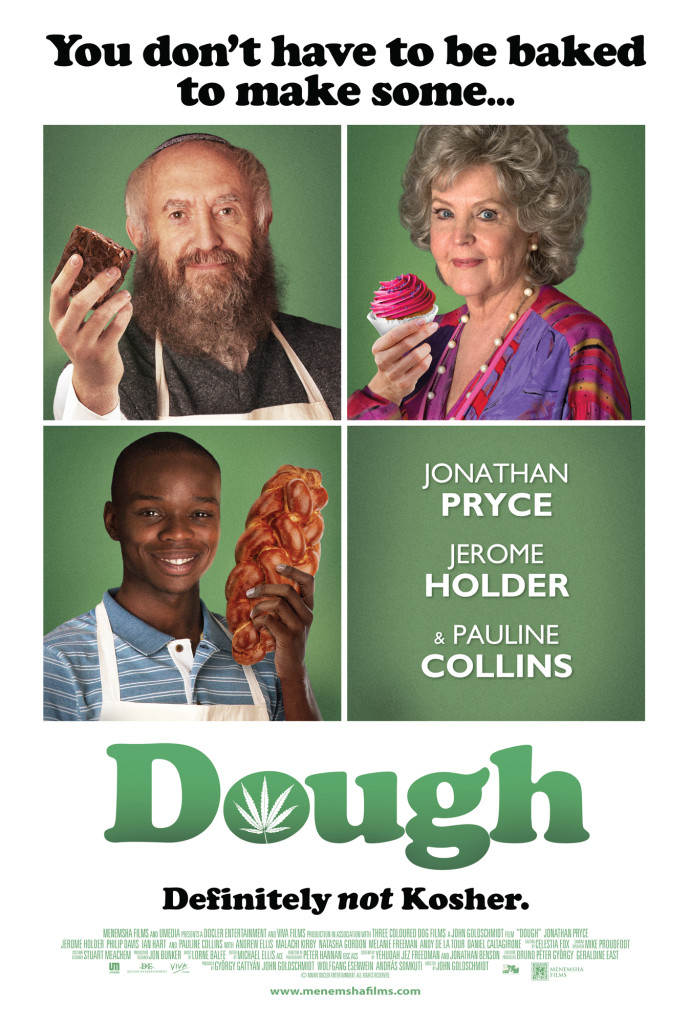
In this country, we have seen an incredible erosion of what some have dubbed the “middle class film.” The definition of such a film is something of a moving target, but you probably already know the kind of movie I mean. I’m talking about films that cost less than $100 million but more than, say, $1 million; films that are no safe bet yet are still made on more than a few credit cards by street light. In the UK (and much of the rest of the world; we’re a special kind of deprived in the states), thankfully, these films still seem to exist, and John Goldschmidt’s Dough is a perfect example of why that’s a very good thing.
Nat Dayan, played by the always excellent Jonathan Pryce, is an aging Jewish baker in the East End of London a neighborhood that is fast getting bulldozed by the promise of progress. The clientele for his kosher sweets and challahs is fast winnowing away, or else they’re going to the slick new grocery store that has opened up next door, Cottons. It’s a story told a million times over: times change, but what are we to do with tradition? Nat is an artisan in an era that has no room left for them.
 Meanwhile, Ayyash, in a spirited performance from the young Jerome Holder, is a Muslim immigrant from Darfur on the cusp of starting his life out on the wrong foot. Dreaming of a better life for himself and his mother, Ayyash gets in with the wrong nudniks, needling his way into a gig unloading weed for a low-level, but clearly unhinged, dealer. In an effort to get him off the treacherous path before him, his mother, who cleans at Nat’s shop, gets Ayyash an apprenticeship at the bakery, thus setting our plot in motion.
Meanwhile, Ayyash, in a spirited performance from the young Jerome Holder, is a Muslim immigrant from Darfur on the cusp of starting his life out on the wrong foot. Dreaming of a better life for himself and his mother, Ayyash gets in with the wrong nudniks, needling his way into a gig unloading weed for a low-level, but clearly unhinged, dealer. In an effort to get him off the treacherous path before him, his mother, who cleans at Nat’s shop, gets Ayyash an apprenticeship at the bakery, thus setting our plot in motion.
Dough is a simple story told simply. We have two characters who couldn’t be bigger foils for each other: the aging widower Jew looking for solace and the young African Muslim edging toward a life of crime. And, you guessed it, their humanity brings them together. There is, of course, a strange misadventure that catalyzes their friendship. Ayyash at first starts selling pot from the storefront, but one day accidentally tosses a few buds in dough mid-mix to hide it from prying eyes. Unable to extract it or toss out a day’s work, he bakes the bread which later bakes Nat and his whole family, including his small granddaughter. It’s the friendliest Shabbat meal they’ve shared in years! A light bulb goes off, cannabis gets baked into everything and sales go through the roof, all while Nat seems unaware.



Leave a Reply